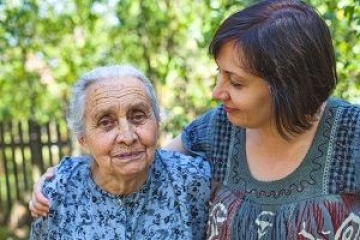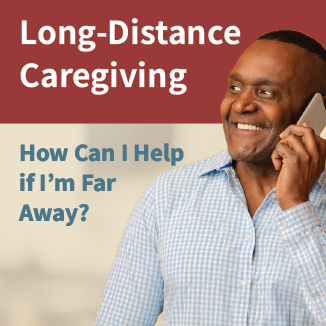Frequently Asked Questions About Caregiving
Providing care for an older adult can be overwhelming, especially at the beginning. On this page, you will find answers to frequently asked questions about caregiving.
Click on each of the expandable sections below to see the answer to each question and links to other resources.
-

The Caregiver’s Handbook
Explore this guide to getting started with caregiving, finding support, and taking care of yourself.
You may also be interested in
- Learning how to get started with caregiving
- Finding services for older adults living at home
- Reading more articles about caregiving
Sign-up for e-alerts about caregiving tips and resources
For more information
Eldercare Locator
800-677-1116
eldercarelocator@USAging.org
https://eldercare.acl.gov
Medicaid
877-267-2323
866-226-1819 (TTY)
Medicaid.gov@cms.hhs.gov
www.medicaid.gov
Medicare
800-633-4227 (1-800-MEDICARE)
877-486-2048 (TTY)
www.medicare.gov
Caregiver Action Network
202-454-3970
info@caregiveraction.org
www.caregiveraction.org
Family Caregiver Alliance
800-445-8106
info@caregiver.org
www.caregiver.org
This content is provided by the NIH National Institute on Aging (NIA). NIA scientists and other experts review this content to ensure it is accurate and up to date.
Content reviewed:
December 07, 2023




